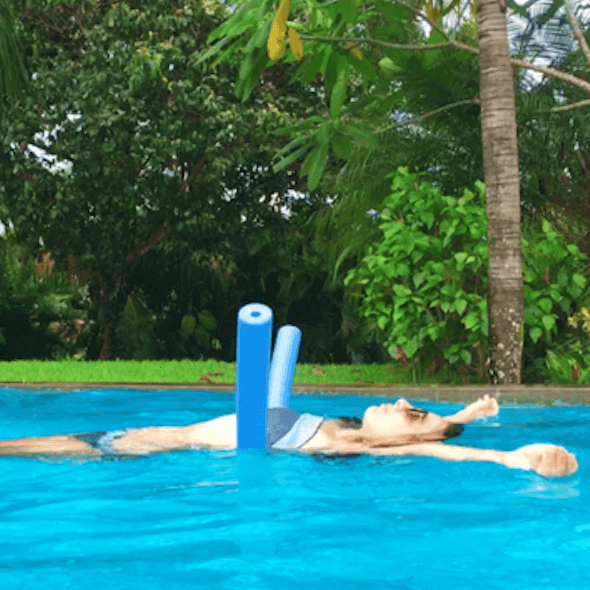

11 Scientifically Proven Ways to Be Happy – Naturally
By
We all know that it feels good to be happy. If you’re happy, you will be more productive too. This will help you accomplish more in your life.
And let’s not forget the health benefits of being happy too. As the saying goes, “Laughter is the best medicine.” Yes, it is scientifically proven that happy people are less likely to get sick.
With all the amazing benefits of being happy, you would want to be happy.
And you can!
We now present you with 11 scientifically proven (and effective) ways to becoming happy.
Remember, you have nothing to lose by being happy, but EVERYTHING to gain!
Tip #1 – Make Sure to Get Enough Sleep
The main benefits of sleep include recovering from the days’ activities and facilitating internal repair within your system. New studies also show that getting enough sleep contributes to a person’s happiness too.
Since happiness influences one’s positivity and negativity, it’s important to understand its relation to sleep.
Research on this matter shows that people who get enough sleep have a more positive outlook in life. They react to things positively too. (that is always better!)
Lack of sleep, on the other hand, can cause a person to think and act negatively. We don’t want a bunch of cranky people walking around do we.
Sleep, or lack thereof, has huge effects on the brain. Note that negative stimuli are processed by the amygdala. The amygdala is a set of neurons found in the brain. It is the centre for emotions and can influence and motivate a person’s emotional behaviour.
While we’re still exploring the brain and its relation to sleep and happiness, know that a person’s positive and neutral memories are processed by the hippocampus. Hippocampus refers to that part of the brain associated with forming, organizing, and storing memories.
What does all these scientific mumbo jumbo have to do with sleep and happiness?
A LOT.
Studies show that sleep deprivation can have a huge effect on the hippocampus compared to the amygdala. That’s why people who are deprived of sleep tend to remember more gloomy experiences and memories than pleasant ones.
Even a nap – a short nap – can be beneficial to a person’s well-being. So Simple!
In an experiment in a working environment, it has been found that employees who were accustomed to taking short naps were always in a good mood. (They do this at the Google office right?) They had better relationships with customers compared to employees who don’t take naps. As for their overall performance, they performed better too.


The same positive effects of sleeping can also benefit the home environment. Needless to say, happy people are less irritable and more tolerable. Every member of the family will be more cooperative and loving as well.
This, of course, will depend on the QUALITY and QUANTITY of sleep. How well you sleep and how long you sleep will depend on your lifestyle, routine, and attitude.
Bottom line: get enough sleep and find yourself happier, healthier and more productive too.
Tip #2 – Get Some Exercise
A lot of people say that they don’t have time to exercise. But that can’t be true.
Go to Youtube and you’ll find 10-minute workout videos, 7-minute and even 3-mnute videos on exercising. You still think you can’t fit any of those in your 24 hours in a day? That’s just impossible.
Even if you take a short break to do 2 minute planks, 2 minute wall sites and 3 sets of 15 squats you feel energised. Short quick bursts help refresh your brain so you can be more productive and alert.
You don’t even need to go beyond 20 minutes (if you’re willing to allot that time) for a good and efficient workout routine. Surely, you have AT LEAST 10 minutes, right?
Just think about it. If exercising can lead to happiness and improvement of your overall well-being, isn’t it worth doing a few minutes each day?
Studies show that exercising is also an effective way of combating depression. Research also shows that the relapse rates of people who take on exercising as a way to treat their depression symptoms are very low. The relapse rates of those who are taking antidepressant drugs, on the other hand, are known to be high.
Now, there’s a logical and scientific explanation for the result of these studies. We all know that all drugs have side effects; and antidepressant medications are particularly known to carry negative side effects. These are addictive too, as one can become dependent on it to feel good.
It’s different with exercise, of course, as it doesn’t carry negative side effects. And if you become addicted to it, you’ll simply become healthier and – as the study shows – happier.
The benefits of exercising don’t stop at just keeping you healthy and happy. Exercising also increases your brain power as it promotes proper circulation of oxygen. Your body image will improve too, and give you confidence. All those things will again contribute to your happiness.
Scientifically speaking, exercising also promotes the production of endorphins in your brain. These are called “feel good” chemicals because their production NATURALLY makes a person happy.
Tip #3 – Smile. Smile a Lot. And Don’t Forget to Laugh…
Smiling is a proven method to feel better. If you want it to be more effective, consciously back it up with positive thoughts. And if you want to make it EVEN MORE effective, add a good laugh too.
In the song, “Smile,” the lyrics goes… “Smile though your heart is aching…. Smile even though it’s breaking…….” Doesn’t it make you wonder if forcing a smile is really good and advisable?
A study on genuine smiles and fake smiles was conducted by some scholars from the Michigan State University. In the workplace, it has been found that employees who fake their smiles on customers tend to worsen their mood and perform poorly on their jobs. Those who do not fake their smiles and are naturally in good mood, on the other hand, tend to be more productive.
Sometimes, it’s all in the attitude. Even if you’re having a bad day, you can turn your thoughts on pleasant things like an upcoming vacation, a bonus, or a family activity. You won’t find it hard to smile when you think of all these nice things.
Another test was conducted by Johnson et. al. in 2010. Results revealed that participants who genuinely smile a lot performed better on attention tests. When shown a picture of a forest, they saw the whole forest. Those who didn’t smile a lot just focused on the trees (see the difference?).
Forcing or faking a smile is not that bad, though. In fact, this can somewhat reduce the effects of painful personal situations.
Psychologists refer to this as the facial feedback hypothesis. Forcing a smile can reduce the stress caused by unpleasant situations. Yes, even a fake smile can effectively lift your mood, even slightly.
Try it. Gimme me a little smile right now.
Tip #4 – Get Some Outdoor Life
Have you read Shawn Achor’s book, The Happiness Advantage? Shawn is a teacher of positive psychology and he encourages people to spend time outdoors to get fresh air. According to him, it can improve one’s happiness.
Other studies support Achor’s views too. In fact, it is scientifically proven that just spending about 20 minutes outdoors on a good weather condition can put a person in a positive mood.
Other pleasant sights and surroundings such as the sea, sunrise, sunset, fields, and mountains – can all enhance one’s thinking, analyzing, and working memory.
Further studies show that those living in all-natural environment thrive better, compared to those living in an urban environment.
So get out there and take a walk in nature!
Tip #5 – Spend Time with Your Loved Ones
It has been said that one of the top 5 regrets of a person in his or her death bed is not spending enough time with loved ones – that includes family and friends. Yes, it has been found that social time is VERY important, even for introverts.
We’re happy when we have a family.
We’re happy when we have friends.
If we are always in an overall happy mood, all other things just seem to be….. well, happy.
There is a saying…. “No Man is an Island.” This means that a person cannot exist or HAPPILY exist by being alone.
A specific study was done on this subject. The Terman study, which was covered in The Longevity Project, revealed that good social relationships can lead to long and happy lives.
At first, it was assumed that people who feel loved and cared for by their friends and relatives will have healthier and longer lives. Well, this assumption is only partly true, based on the results of the experiment. While the assurance of having people to rely on can positively affect a person’s health, it doesn’t necessarily follow that they could have longer lives.
Social relationships that involved helping loved ones were experimented on too. And believe it or not, results showed that people who help and care for others are the ones who get to live up to old age. It’s more than just good karma, don’t you think?
It can be concluded that people who are always willing to help their loved ones end up feeling fulfilled and happy. And when the happy bug is always around, good health and long life can be expected.
Tip #6 – Move Closer to Your Workplace
This is a big one for me. A lot of people don’t realize that commuting to work has a huge impact on happiness. It becomes a routine to commute to work at least 2 times a day, every day, 5 days a week. However, the effects really build up over time. The result – stressful and unhappy workdays – and that happens 5 days a week.
As Harvard Psychologist Daniel Gilbert eloquently put it, “Driving in traffic is a different kind of hell every day.”
If you agree with Dr. Gilbert, move closer to your work. Be happy!
Or even better, work from home. This truly does make you happier.
If you do have a job where you are commuting 2 hours a day then I hope you are at least doing something productive like listening to audio books or doing something that improves your life in that time.
Tip #7 – Spend Money and Time on Other People
Yes, you read it right – spending time, and even money, on other people can make you happy.
In his book, Shawn Achor revealed the outcome of his experiment on this matter. He interviewed more than a hundred people about their recent purchases and checked on their happy meter.
As it turned out, those who spent their money on activities involving other people (such as going to concerts, dinners, etc.) felt VERY fulfilled and happy. In fact, even happier and more fulfilled than purchasing material objects (such as shoes, bags, and watches) for themselves. This is called pro-social spending; and it’s really an effective happiness booster.
Still not convinced?
Another study was published by The Journal of Happiness Studies. This time, the participants were asked to report their level of happiness when purchasing items for themselves and for others.
When the results came in, it was unanimous that more people felt happy when they spent money on someone else. And given the scenario of a sudden fortune, more people also showed interest in spending money on someone else instead of themselves. They simply felt happier this way. Awww…
Similarly, spending time on other people had the same effects too. Time, after all, is just as valuable as money. Some even consider it to be MORE valuable than cash or any riches.
A study was conducted on the volunteering situation in Germany before and after the fall of Berlin wall. Volunteers were happier when they were helping other people because they felt that they were doing something good. This opportunity was taken away after the fall of Berlin wall; and the volunteers felt a sense of sadness.
In his book, Flourish: A Visionary New Understanding of Happiness and Well-Being, University of Pennsylvania professor, Martin Seligman, explains his thoughts on the subject. According to him, helping other people can actually improve your life because of the happiness that can be derived from such a noble act.
Other scientists back up these claims too. According to them, doing an act of kindness is a reliable way of improving happiness, even momentarily.
Bottom line: If you want to be really REALLY happy, be very VERY kind.
Try it yourself. There are unlimited opportunities to helping others. You can either spend your money on them or spend some time with them.
Tip #8 – Meditate
Meditating has always been known as a good and important habit. With this practice, a person’s mind and body can become calm so that one can better focus on things and situations. Well, new findings reveal that the overall effects of meditation can influence a person’s happiness too.
The Massachusetts General Hospital formed a research team for this particular purpose. Participants of an 8-week course in meditation allowed their brains to be scanned. Their brain scans were then studied an evaluated.
The result of the study was published in the January issue of Psychiatry Research: Neuroimaging with the following conclusions:
The parts of the brain associated with kindness and happiness grew.
The parts of the brain associated with stress, anxiety and depression shrank.
What can we take from this? – That symptoms of stress, negativity, and unhappiness can all be minimized through meditation. And happiness can be heightened instead.
After meditating, a person can feel immediate relief from problems that could lead to unhappiness. And so, with constant meditation, even just 5 minutes each day, happiness will always be a part of your life.
Tip #9 – Plan for a Trip
Yes, planning for a trip can make you happy even before taking the actual trip.
A study in the journal of Applied Research in Quality of Life, it was shown that the highest level of happiness when taking trips can be traced on the planning stages. The sense of anticipation with high expectations on the trip can really promote happiness within a person.
Even if it is just a short road trip an hour away!
As revealed by the participants, the trip anticipation can boost happiness by up to 8 weeks before the actual vacation. After the vacation, however, the happiness level can quickly drop to normal.
In Shawn Achor’s book, he said that people who anticipated watching their favourite movie raised their endorphin levels by up to 27%. Remember the “feel good” chemicals? They thrive when anticipating something pleasant. We like it when our endorphin levels are at their all time high.
Remember, PLANNING is the word. If you can’t plan for a vacation right now and you need a dose of “feel good” chemicals, you can at least plan to go out – plan to have dinner with a friend or watch a movie.
Actually, you can plan for activities or vacations months or years ahead. As far as happiness is concerned, it’s all in the plans. And if you want a boost of happiness on sad days, just remind yourself of these upcoming plans to start feeling good again.
Tip #10 – Be Grateful and say Thank You
It’s proven true – counting your blessings and being sincerely grateful for them can increase your satisfaction and HAPPINESS. An experiment was conducted to test this theory and the results were astounding.
The participants who were tasked to note down the things they were grateful for experienced noticeable improvement in their moods. Some wrote down their gratefulness to other people – to those who were kind and good to them.
The results revealed that consciously focusing on blessings can improve one’s emotional condition, combat depression symptoms, and improve a person’s overall happiness.
So think about what you’re thankful for today (yes, make everyday Thanksgiving day) – and notice your happiness level soooooar.
By the way, Thank you for reading my blog! I am so grateful for having you as a reader 🙂
Tip #11 – Be Older and Wiser
There are scientific evidences that point to the fact that getting older can make a person happier.
According to scientists, researches and authors, a person can naturally become happier as one gets older. The term “older and wiser” can be applied to this theory.
Studies show that as a person matures, he or she tends to focus more on happier memories than negative ones. Moreover, they would consciously seek out situations that would lift their moods instead of bring them down. They might even go as far as to break connections with people who are causing them unhappiness.
The older people get, the less demanding they are of themselves too. And by being more forgiving and accepting of their shortcomings, they are able to lessen their disappointments in themselves and in life.
So remember – as you grow older, work on being wiser too. It will make you happier. ☺
Exclusive Bonus: Get My Video Training About The Most Consistent Strategy To Grow Your Digital Assets In 2022 (This is Tested & Proven By Myself & My 4,000+ Students Over The Last 9 Years)



